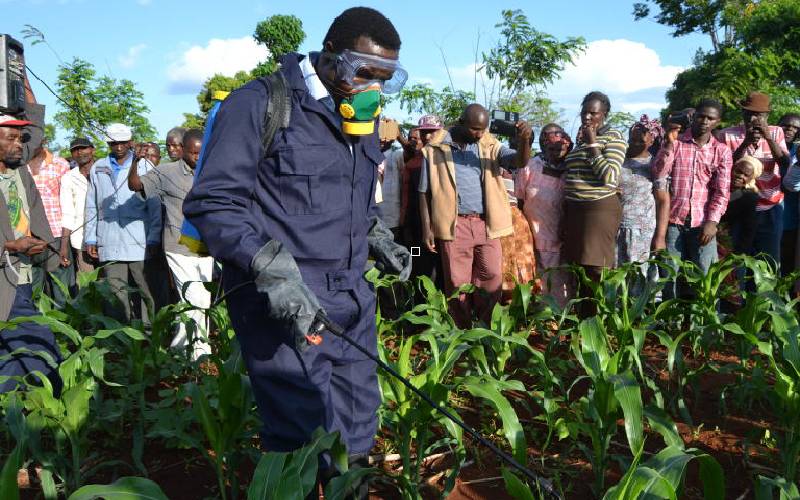×
The Standard e-Paper
Home To Bold Columnists
 The county agriculture department has procured chemicals worth Sh15 million to fight fall army worms reported to have invaded maize plantations in some parts of the region. Army Worms, Chemicals Uasin Gishu
The county agriculture department has procured chemicals worth Sh15 million to fight fall army worms reported to have invaded maize plantations in some parts of the region. Army Worms, Chemicals Uasin Gishu
The county procured the chemicals through emergency funds and is also seeking support from the national government in the fight against the destructive pest.